Option 1
Maybe, we would just add start and end anchors and fail the UUIDs, and change the capturing groups to non, if that'd be OK:
^(?:[Gg][Ii][Rr]\s+0[Aa]{2})|(?:(?:([A-Za-z][0-9]{1,2})|(?:(?:[A-Za-z][A-Ha-hJ-Yj-y][0-9]{1,2})|(?:(?:[A-Za-z][0-9][A-Za-z])|(?:[A-Za-z][A-Ha-hJ-Yj-y][0-9][A-Za-z]?))))\s*[0-9][A-Za-z]{2})$
The expression can be most likely simplified (e.g., non-capturing groups), I have also added extra spaces, just in case.
Option 2
Another option would be to add word boundaries, then it would become almost improbable that it would match a UUID in our data, that I'm guessing, and we can also add an i flag:
(?i)(?:\bgir\b\s+\b0a{2}\b)|\b(?:[a-z][0-9]{1,2}|[a-z][a-hj-y][0-9]{1,2}|[a-z][0-9][a-z]|[a-z][a-hj-y][0-9][a-z]?)\s*[0-9][a-z]{2}\b
Test
import java.util.regex.Matcher;
import java.util.regex.Pattern;
final String regex = "^(?:[Gg][Ii][Rr]\\s+0[Aa]{2})|(?:(?:([A-Za-z][0-9]{1,2})|(?:(?:[A-Za-z][A-Ha-hJ-Yj-y][0-9]{1,2})|(?:(?:[A-Za-z][0-9][A-Za-z])|(?:[A-Za-z][A-Ha-hJ-Yj-y][0-9][A-Za-z]?))))\\s*[0-9][A-Za-z]{2})$";
final String string = "c25d4f64-2336-4a5d-b94c-14dc12xxxa58\n"
+ "AB11AB";
final Pattern pattern = Pattern.compile(regex, Pattern.MULTILINE);
final Matcher matcher = pattern.matcher(string);
while (matcher.find()) {
System.out.println("Full match: " + matcher.group(0));
for (int i = 1; i <= matcher.groupCount(); i++) {
System.out.println("Group " + i + ": " + matcher.group(i));
}
}
The expression is explained on the top right panel of regex101.com, if you wish to explore/simplify/modify it, and in this link, you can watch how it would match against some sample inputs, if you like.
RegEx Circuit
jex.im visualizes regular expressions:

